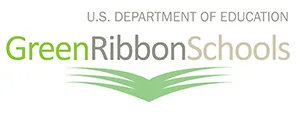Sustainability in Action
At Westtown, stewardship of the environment is central to how we educate, live, and operate our school. Students are not just learning about environmental issues, they are also seeking solutions to move us towards a more sustainable future. This work is rooted in our Quaker values and in a community that believes in sustainability so much that stewardship of the environment is affirmed in our mission and further articulated in our Strategic Vision.
Our commitment to sustainability is evident in a multitude of ways, and theses are just a few examples of how we live it:
- In the classroom: From our robust Outdoor Education Program and science curricula in each division — including the Sustainability Leadership Deep Dive, Advanced Environmental Science courses, and the Environmental Justice course in Upper School — connecting students with the natural world and teaching them about the environment and sustainability practices is a common thread throughout a Westtown education. Students extend their knowledge and many put it into action through their environmental clubs and on our Sustainability Committee.
- Organic farms: the minifarm at the Lower School and the student-run organic farm on the south end of campus provide not only opportunities for learning and leadership, but also produce food consumed by our community. The produce grown on our student-run organic farm goes directly to our Dining Room — more than 5,000 lbs a year.
- Dining Room: Our Dining Room was awarded 4-Star Green Restaurant designation by the Green Restaurant Association – an honor rarely given to a school dining facility – after being evaluated in six categories: energy, water, waste, food, disposables, and chemical use. 37% of all food served in our Dining Room is locally sourced. Our Dining Room serves produce from the student farm year round, as well as produce from 80 area farms through Philadelphia’s Common Market.
- Green buildings: LEED Gold Science Building; Balderston Commons and dormitory is geothermally heated and cooled and is Energy Star Certified; our renovated Facilities Building received LEED Commercial Interiors Certification; Guerster House dormitory is geothermally heated and cooled; all faculty houses and campus buildings have received energy audits and retrofits.
- Alternative Energy: 100% of Westtown’s energy usage is matched with Renewable Energy Credits sourced from wind facilities. Westtown also models renewable energy generation on campus through: a 44 kW solar array on the Athletic Center; geothermal heating and cooling in two dormitories, the science building, and five faculty homes; solar hot water in the LEED Gold science building.
- Facilities operations: Electric/hybrid vehicles have been purchased and charging stations installed; electric, battery-run tools are used (ex. electric saws and weed whackers); maintenance of rare plants on campus; use of green cleaning products; use of low or no VOC paints and finishings in buildings where possible improve indoor air quality. There are Campus-wide No Tobacco and No Vehicle Idling policies in place.
- Conservation: Since 2007, we have cut campus electricity use by 18%; reduced carbon emissions from heating, cooling, and electricity by 60%; invested more than $500,000 from energy savings back into our programs; and begun setting a timeline for achieving carbon neutrality.
- Recycling/Composting: With single-stream recycling campus-wide, we divert 55% of our waste from landfills. Compost from all three divisions gets turned into fertilizer for the campus gardens, or feeds the chickens at our Lower School minifarm or our commercial farm.
- Partnerships/Recognitions: Pennsylvania Association of Independent Schools’ (PAIS) Farm-to-School Buying Consortium, co-founded by Westtown; Philadelphia Common Market; Westtown’s MOTUS tower collects and shares data on migratory birds; Chester County Food Bank. Westtown has been designated a Green Ribbon School by the U.S. Department of Education; our Dining Room is a 4-Star Green Restaurant.

